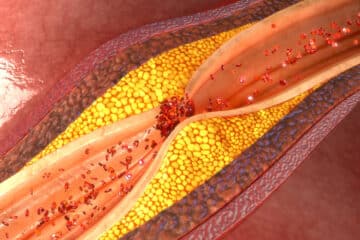
The rotator cuff is a series of four small muscles that control your shoulder. Tears in the rotator cuff are very very common. It turns out that using the term “tear” really isn’t very accurate. Most rotator cuff tears are degenerative. That means your tissue simply wore out – it didn’t tear. It’s a sad fact of life: many people have rotator cuff tears and do not even know it. Many of you have shoulder pain and your MRI revealed a degenerative rotator cuff tear. Why do some “tears” hurt while other do not? We do not know the answer to that question.
Just because something is torn does not mean that it always needs to be fixed. In many cases your shoulder pain will respond to non-surgical measures such as injections, supplements, support sleeves or braces, a shoulder pillow to sleep with, medications and physical therapy. For those of you with traumatic tears following a significant injury or fall (not picking up a box, etc) then surgery is the recommended treatment. However, the vast majority of rotator cuff tears are degenerative or atraumatic.
The American Academy of Orthopedic Surgery put forth a series of guidelines on how to manage patients with rotator cuff tears. It shows that there is very little evidence in the scientific literature to support surgery as the initial treatment option of degenerative, atraumatic rotator cuff tears. They published a guideline for surgeons and it reveals that we do not really know how to manage these degenerative tears. The issue is that some tears will grow larger, yet many will not. Many will respond to physical therapy, yet some may not. More importantly, most research shows that the integrity of your rotator cuff… does NOT correlate with whether or not you have shoulder pain. That means that you may have had rotator cuff surgery, feel great, but if we image your shoulder we find that the rotator cuff tear did not heal. Confusing isn’t it? That’s why you can get four opinions on how to manage your rotator cuff tear and receive many different opinions.
A recent study out of Finland showed no benefit to choosing surgery over physical therapy in the management of patients with small rotator cuff tears.
Your take home message:
IF you have a degenerative tear of your rotator cuff, and did not suffer a significant injury, then it is likely safe and prudent to consider physical therapy as your primary treatment.












Hi Dr. Luks,
Having seen my x-ray and MRI, my doctor has indicated I have partial tears in my supraspinatus and subscapularis and a bone spur. He seems to be eager to perform surgery, but I’m not so sure he has fully identified the problem. During 4 weeks of physical therapy, I’ve discovered that my shoulders seem to be rolled forward, my shoulder is frozen, and I experience impingement when I raise my arm (from the bone spur perhaps). The PT has helped a lot with my range of motion and the pain is not as bad as I recall. There seems to be alot of popping going on in the shoulder when I raise my arms.
The strangest thing I’ve found is when I reach behind my back, my right shoulder comes forward and my elbow points directly behind me instead of out to the side. Is this odd movement indicative of frozen shoulder or partial rotator cuff tears or do I have some other problem?
Thanks in advance.
Stiffness can cause that unusual motion pattern.
Bone spurs are not a reason for surgery. Most patients with partial tears will improve with therapy alone.
I am 52 and have “a full-thickness tear involving the infraspinatus tendon, which is retracted to the level of the mid humeral head. There is a fluid-filled tendon gap, measuring 18.” I had a bike accident 1 year ago that caused this. I’m still able to swim, play tennis and do yoga. I don’t care about the pain, only the longevity of the shoulder and being active now and into the future. Should I get surgery as was recommended by surgeon or should I carry on with my activities?
Hi Dr Luks
I am a 53 year old woman who is a veterinarian in my own single practice. For the last 6 months I have been experiencing shoulder pain (low grade dull pain most of the time and painful weakness when I try to lift things to the side with my right arm). I recently had an ultrasound on my right shoulder (this is my dominant arm) and was told that I have a partial tear of my supraspinatous at the insertion on the humerus measuring 23mm by 17mm. The Dr told me physio is the treatment for partial tears and if this does not work and the pain does not go away then I should get an mri and maybe surgery. Anyways my question is what percent of the tissue is torn (partially torn, but is it 50%, or is it more or less) and does it matter the size of the tear relative to the size of the muscle effect the prognosis and recovery? Your input is greatly appreciated. Thank you so much.
HI Barbara …
THickness appears to matter most… With partial rotator cuff tears, if > 50% of the footprint of the SST or IST (supra and infraspinatus) are torn the chance of progression increases, and the recommended treatments might change too. Most all partial tears- regardless of thickness- are usually managed with physio. If surgery becomes “necessary” due to lack of a response to PT, etc then the choices are a bioinductive patch or a more formal repair.
Good Luck.
Hi Dr. luks
I am 43 year old male firefighter with 2 should surgeries already on my shoulder. I have a 6mm rotor cuff tear. My Dr. said other repair sites look very good and not damaged. Been in physical therapy for about a month shoulder feels pretty good, some pain here and there but not like it was when injury occured. Not sure if i should keep going to PT. or have surgery at this point. This is the decision I am faced with. Your thoughts?
I doubt that many shoulder surgeons would consider surgery on a 6 mm rotator cuff tear in someone with very little pain.
Hi Doc,
After reviewing an mri for my shoulder, it is determined that I have a full thickness tear of the supraspinatus with 4 cm retraction. It looks to be an acute tear which likely occurred during a recent gym session. The muscle shows no fatty atrophy. My doctor recommended surgery but I am concerned about jumping in too fast. I am an active 45 year old and compete in road and trail running races. This will sideline me for sure, but I don’t want to be short sighted. One thing that surprised my Ortho was the amo7nt of strength and range of motion I still have. I have significant pain for sure, but I might be willingnto live with it if it is likely as bad as it’s going to get without surgery. Any thoughts?
Thanks!
HI Ben….
These are very tough decisions. If only the supraspinatus is involved then strength is not affected. Tears need to involve the infraspinatus in the back of subscapularis in the front to cause weakness.
I can not offer specific advice on what to do…. that discussion is for you and your doctor.
Good luck
Gotcha – thanks for the quick reply!
Best,
Ben